At its 16th Session in 2012, the Commission adopted the Resolution 12/10 To promote implementation of Conservation and Management Measures already adopted by IOTC (Superseded by Resolution 16/10), which establishes a special fund for capacity building activities. Resolution 16/10 tasks the IOTC Secretariat to contact international organisations, donor agencies and non-governmental organisations to seek voluntary financial contribution. As a result, the IOTC Secretariat has contacted several organisations and was able to develop a work program of capacity building activities.
Current capacity building activities are:
Component 1 of the Work Plan of the Working Party on the Implementation of Conservation and Management Measures (WPICMM) requires that CPCs provide information on capacity building activities that they provide and that developing CPCs can utilize. The Secretariat is subsequently required to compile and publish the information as a compendium of capacity building activities.
Contribution to the compendium : WPICMM09 - Australia, European Union, Japan, Kenya.
Compendium of capacity building activities (Download).

The manual A provides a working document for Contracting Parties (or “Member”) and Cooperating Noncontracting Parties (CPCs) to use in the implementation of the IOTC Resolutions. The content is divided into two chapters. The first chapter provides a broad overview of the international regime within which the Indian Ocean Tuna Commission has evolved, then examines the role of specific key international legal instruments (conventions and agreements) related to Indian Ocean tuna fisheries. It describes the roles of regional fisheries management organisations (RFMOs) and Regional Fisheries Advisory Bodies (RFABs), and explains what the IOTC is, how it is supposed to work, who drives it and what results are expected of it. The second chapter summarises the principles and measures provided by international instruments that guide fisheries management. It then describes the fisheries management tools used by IOTC from the perspectives of coastal States, flag States, port States and market States.
The manual B is to assist IOTC Contracting Parties and Cooperating Non-Contracting Parties (CPCs) to better understand the measures and actions that they must take in discharging their reporting obligations. It provides an overview of the IOTC Conservation and Management Measures (CMMs) that require active reporting and explains the aim, technical requirements and reporting requirements for each. The content is divided into three chapters. The first chapter provides an overview of the objective and structure of this Manual. It describes IOTC Resolutions and Recommendations, and explains the IOTC functions and institutional arrangements responsible for compliance with their requirements. It defines both event-based and recurring reporting and presents a table showing for each Resolution whether the flag, port, coastal and/or market State(s) has or have reporting obligations. The second chapter focuses on the Resolutions that require reporting and explains for each the key considerations for its adoption, the aim and application, technical and reporting requirements. The Resolutions appear in a framework based on the objective of the Resolution: fisheries management, monitoring, control and surveillance, mandatory statistics and market-related measures. The third chapter describes CPCs’ reporting requirements under Article X of the IOTC Agreement, the Rules of Procedure and relevant decisions of the Commission and the Scientific Committee. They require reporting through the annual Report of Implementation, the Standard Compliance Questionnaire and the National Scientific Report.
All implementation sheets 2022: i-Sheets_2022 (ZIP) (Download all Implementation-Sheets).



The activities and methodology:
Compliance Support Mission - With regards to the implementation of IOTC CMMs, the proposed activity is related to the assessment of the level of compliance of CPC, taking into consideration the compliance issues addressed during the Compliance Committee and the Commission meetings. The purpose of the assessment is to identify and to facilitate corrective actions. The assessment allows the concerned parties to gain a clear understanding of the difficulties encountered by the CPC and the challenges they face to implement the IOTC Resolutions at the policy, legal, institutional/administrative and operational levels. The main outcome of the CSM is the development of a corrective action plan, which is designed to assist the CPC to improve and/or strengthen the implementation of the Resolutions.
The methodology comprises as well follow up Compliance Support Missions to provide support to the implementation of the plan of actions elaborated during the first CSM and assess the progress of the implementation of the plan of actions.
CSM and follow up CSM undertaken since 2013: Sri Lanka, Indonesia, Madagascar, Tanzania, Mozambique, Oman, Kenya, Mauritius, Seychelles, South Africa, Thailand, Malaysia, India, Comoros, Somalia, Maldives, Iran, Bangladesh
For assistance contact the Secretariat.

e-MARIS - In 2013 the Indian Ocean Tuna Commission (IOTC) Performance Review made two major recommendations related to compliance with data collection and reporting, and following up on infringements. Para 102. The Commission, through its Compliance Committee, needs to strengthen its compliance monitoring in relation to the timeliness and accuracy of data submissions. To this end, the performance review recommended:“b) to facilitate thorough reviews of compliance, the Commission should invest in the development and implementation of an integrated electronic reporting program. This should include automatic integration of data from CPCs into the IOTC Secretariat’s databases and automatic cross-referencing obligations and reports for the various obligations, in particular related to the provision of scientific data.”
Activity undertaken since 2017: Consultation and validation workshop on the development of an IOTC electronic monitoring and reporting information system (South Africa Workshop, 2017, download the report), Pilot I training: 2021 and Pilot II training: June 2022.
Upcoming activity: CPCs training on demand.
 |  |  |
Online RAV - The objective of the activity is to develop a tool integrated with the e-MARIS application and the IOTC Web Site to allow CPCs to manage their own list of Authorised Vessels.
Upcoming activity: CPCs training on demand.
 |  |  |
Regional CMMs workshops - The objective of the activity is to strengthen the CPCs understanding of the objectives of the IOTC and increase their ability to implement Resolutions adopted by the Commission. Specifically, the activity seeks to improve the knowledge and understanding of CPCs with regards to their obligations, and improve implementation of, and compliance with, IOTC Resolutions.
Regional workshops undertaken : Western IOTC Countries (Mauritius Workshop, August 2013, download the report), Eastern IOTC countries (Malaysia Workshop, February 2014, download the report).
Upcoming regional workshops: on demand.
 |
Strengthen the management of the Indian Ocean tuna fishery through improving flag State performance - The objective of this activity is to provide assistance to IOTC CPCs to implement their flag State responsibilities and fulfil their international obligations, including IOTC obligations.
Flag State performance assistance undertaken: Seychelles, Tanzania and Mozambique.
 |  |  |
Professional internship programme at IOTC Secretariat - The programme provides selected professionals with the opportunity to supplement their working knowledge with practical work assignments in a field related to the work and mandate of the IOTC Secretariat. This enables them to gain a better understanding of IOTC’s mandate and work programmes. At the same time, the Programme provides the IOTC Secretariat with the assistance of qualified individuals specializing in relevant fisheries management fields.
Internship undertaken: Madagascar, Mozambique and Comoros.
Review fisheries law / regulations of CPCs - The objective of this activity is to provide assistance to CPCs to translate the relevant obligations in IOTC Resolutions into binding national legal requirements in order to enhance the effective of implementation and compliance. The activity is related to the preparation of an IOTC “Regulation Framework” which would present the specific obligations in IOTC Resolutions in legal drafting language for incorporation into national legislative frameworks, and to provide overall guidance to CPCs on the process of transposing the IOTC “regulation framework” into the national legislation.
Report of the phase 1: “Review of active IOTC Resolutions and draft provisions for incorporation of IOTC Resolutions into national legislative frameworks”
IOTC legislative framework (EN) IOTC legislative framework (FR) IOTC legislative framework (PT)
For assistance contact the Secretariat.
PSM legal assistance - The objective of this activity is to provide assistance to CPCs to translate the relevant PSM obligations of IOTC Resolution 25/11 into binding national legal requirements in order to enhance the effective of implementation of port State measures at national level. A model PSM template regulation has been produced and is available in IOTC official languages:
Model PSM regulation (EN) Model PSM regulation (FR)
For assistance contact the Secretariat.
National PSM training course - The activity is related to the administrative and operational aspects of the implementation of the Resolution 25/11. A training package has been developed, which includes a manual, a species identification guide, a translation guide, a notebook, a training programme and as well an inspectors kit and a PSM library. (Available for download at http://www.iotc.org/compliance/port-state-measures) The PSMR training is composed of a theory and a practical component where port inspections are conducted. The methodology comprises as well of follow up missions to provide support to the implementation of the Resolution 25/11 and assess the progress of the implementation of the port State measures Resolution 25/11.
PSM training courses and follow up undertaken since 2013: Sri Lanka, Indonesia, Madagascar, Tanzania, Mozambique, Oman, Kenya, Mauritius, Seychelles, South Africa (Cape Town), Thailand, Malaysia, Djibouti, Somalia, Maldives.
For assistance contact the Secretariat.
 |  |
PSM implementation experiences sharing - The objective of the activity is to provide a mechanism for the sharing of experiences between port State Competent Authorities in charge of the implementation of IOTC port State measures, at national level. The activity will involve the relocation of one PSM supervisor/administrator and two port inspectors from a port State competent authority to another port State CPC, to work and share experiences on the implementation of port State measures.
PSM implementation experiences sharing undertaken: Mauritius/Sri Lanka; Seychelles/Thailand, Mauritius/Seychelles, Madagsacar/Seychelles.
 |  |
Regional PSM training course - The objective of the activity is to increase the Port State Control capacity of the developing States - coastal CPCs of the IOTC on implementing operational aspects of the PSM resolution related to national interagency collaboration and regional cooperation (Advance Request of Entry in Port, port inspection and follow up actions).
Regional PSM training course undertaken: Western IOTC Countries (Madagascar, October 2015, consult the training documents). Eastern IOTC countries (Thailand, October 2016, consult the training documents).
Model PSM MoU on national interagency cooperation (EN) Model PSM MoU on national interagency cooperation (FR)
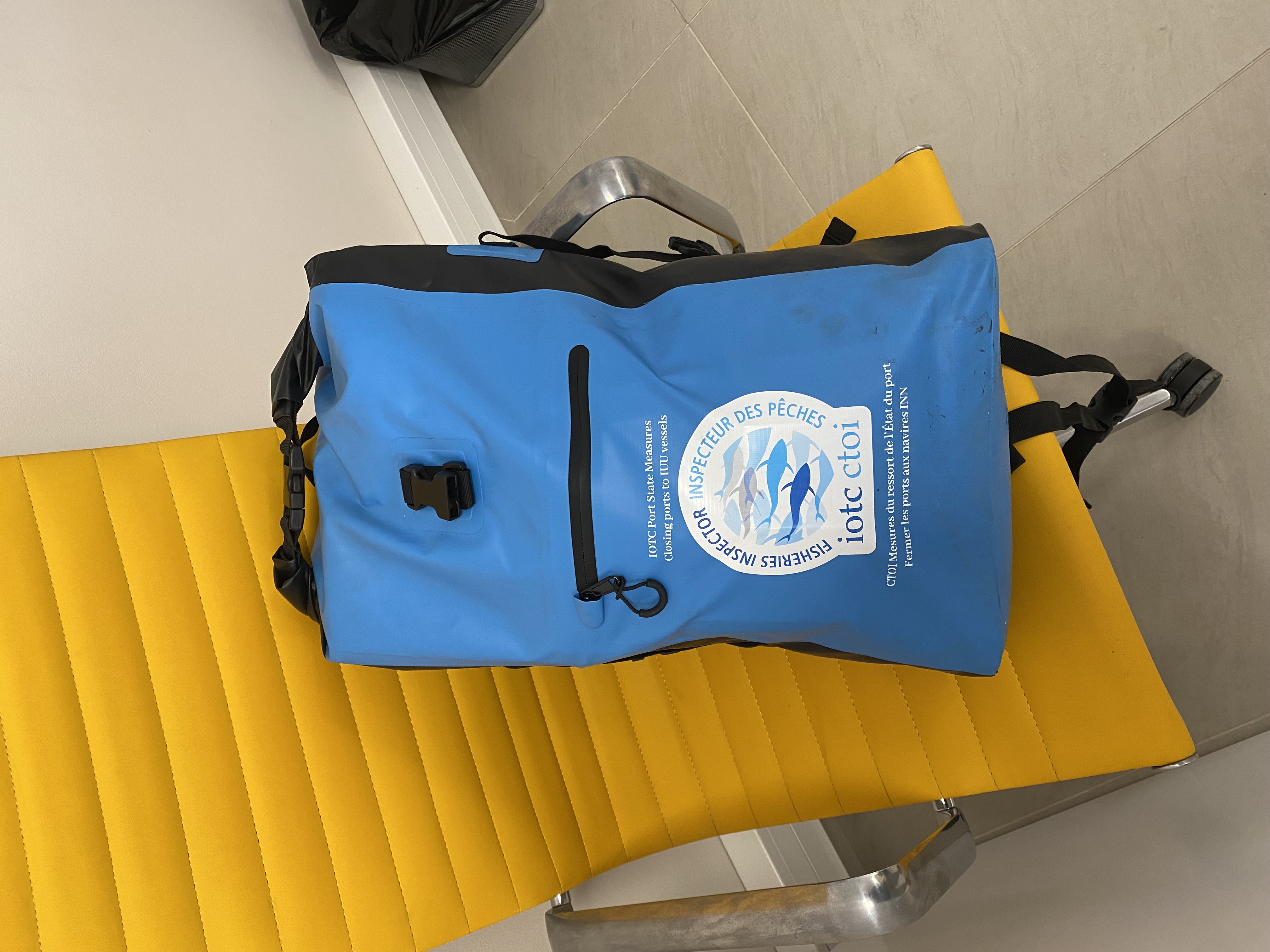 |  |  |
The objective of this project is to enhance the awareness of national PSC and PSM inspectors, operating under the context of the IOMOU and IOTC, of each other’s inspection regimes, enabling them to flag potential infringements or deficiencies to the relevant authorities, to improve coordination and efficiency, and eventually ensuring that ports serve as an effective frontline in combating IUU fishing, while also contributing to improved maritime safety and security, environmental protection and decent labour conditions on board fishing and fishing-related vessels.
Pilot project participating countries: Seychelles, South Africa, Sri Lanka. Organised in South Africa - Cape Town, 19-29 August 2024, consult the training project report). Project’s Working Partners — FAO, ILO, IMO, IOTC, IOMOU, and The Pew Charitable Trusts.
 |  |  |
e-PSM - The objective of the activity is to develop an information system / web-based application accessible through the IOTC web site (e-PSM), to support the implementation of IOTC resolutions on Port State Measures (Resolution 25/11), thus facilitating the implementation of the Resolutions on Port State Control adopted by the Commission.
Consultation workshop on e-PSM:1 to 4 April 2014 (Johannesburg, South Africa), download the report.
Feasibility study report and technical specifications of the e-PSM application, download the report.
Regional training course on e-PSM: June 2015 (Maputo, Mozambique), consult the training documents.
For assistance contact the Secretariat.
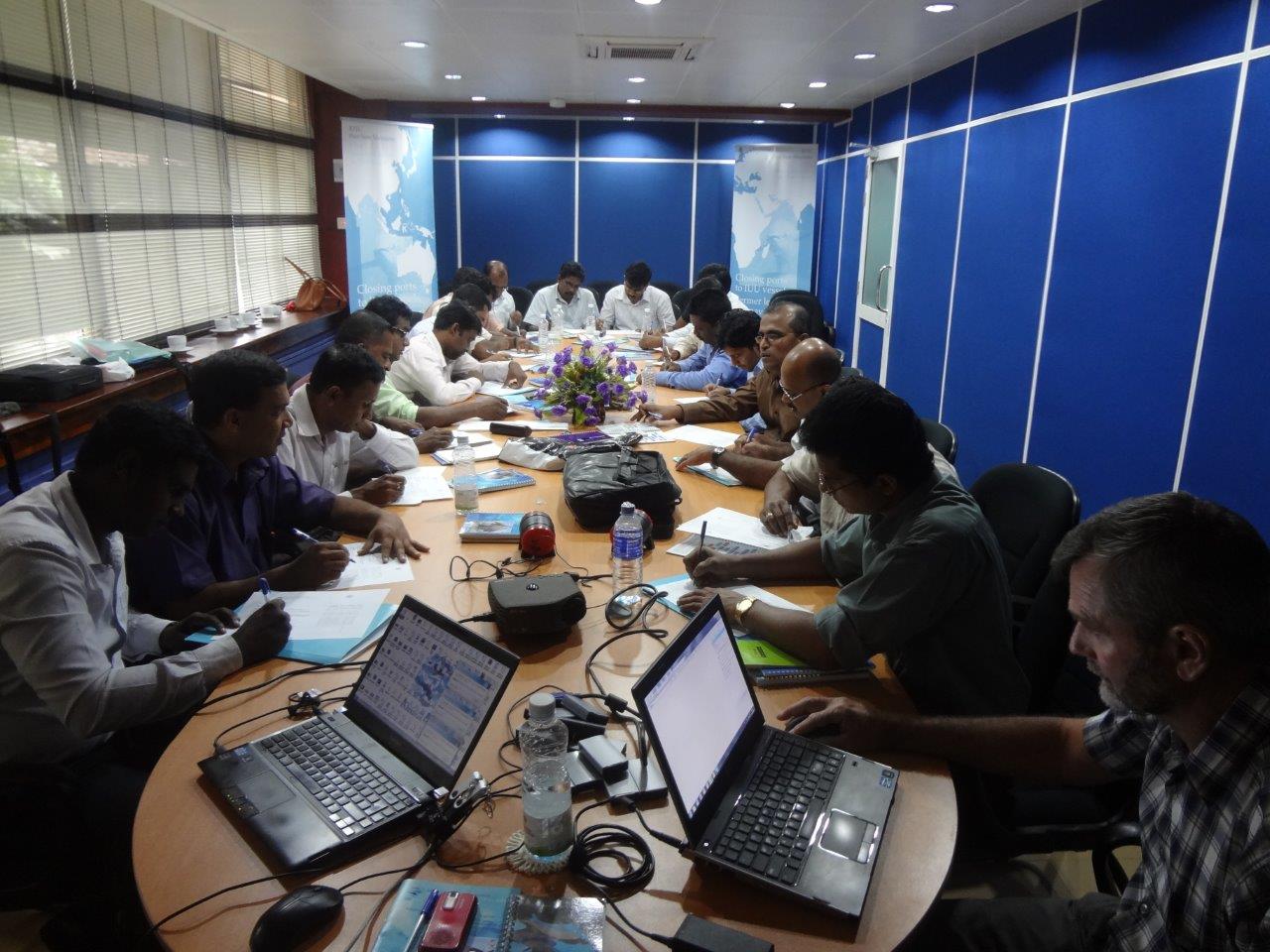 |
e-PSM training and follow up undertaken since 2016: Sri Lanka, Indonesia, France (EU), Madagascar, Tanzania, Mozambique, Oman, Kenya, Mauritius, Seychelles, South Africa, Thailand, Malaysia, Maldives.
 | 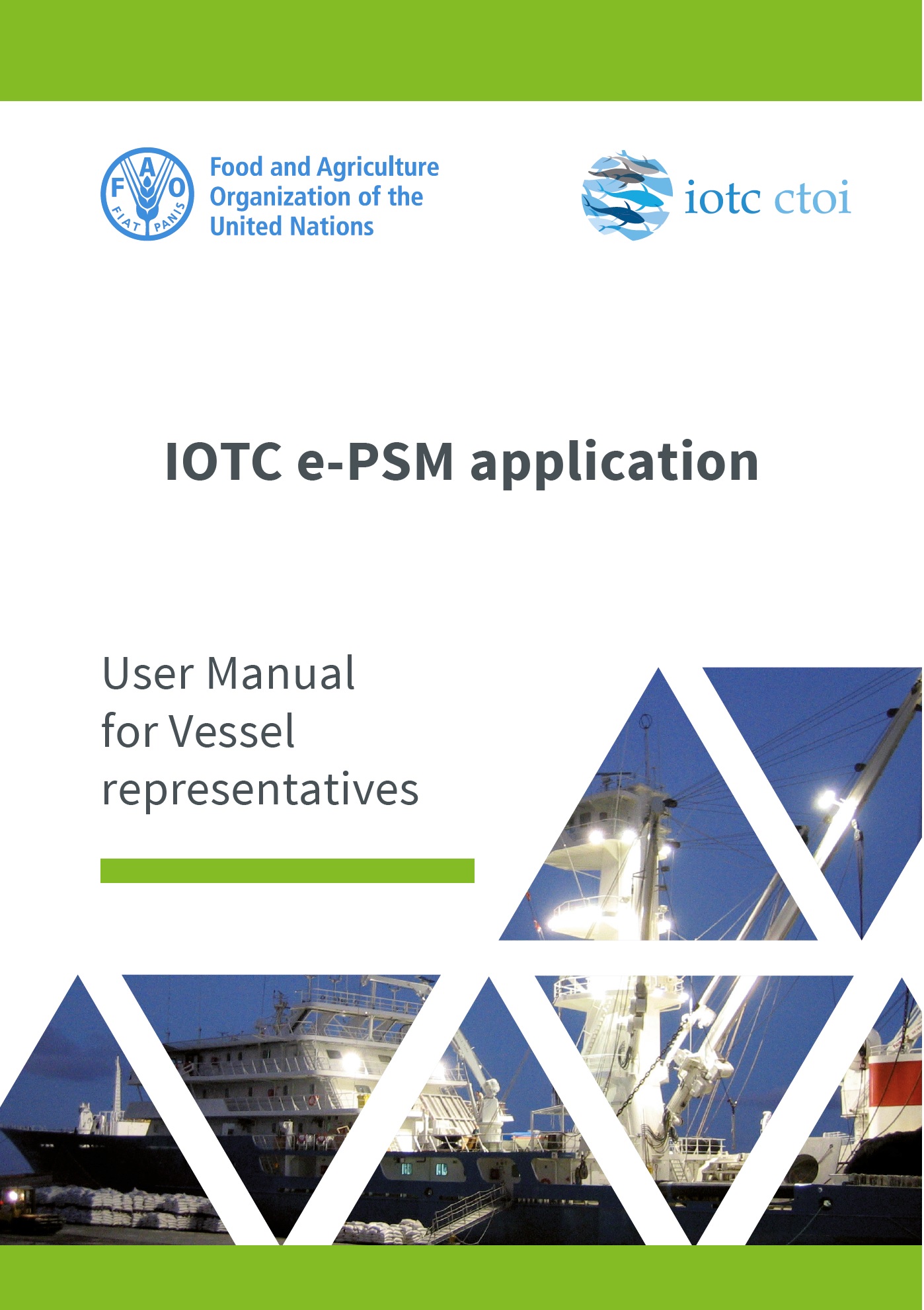 | 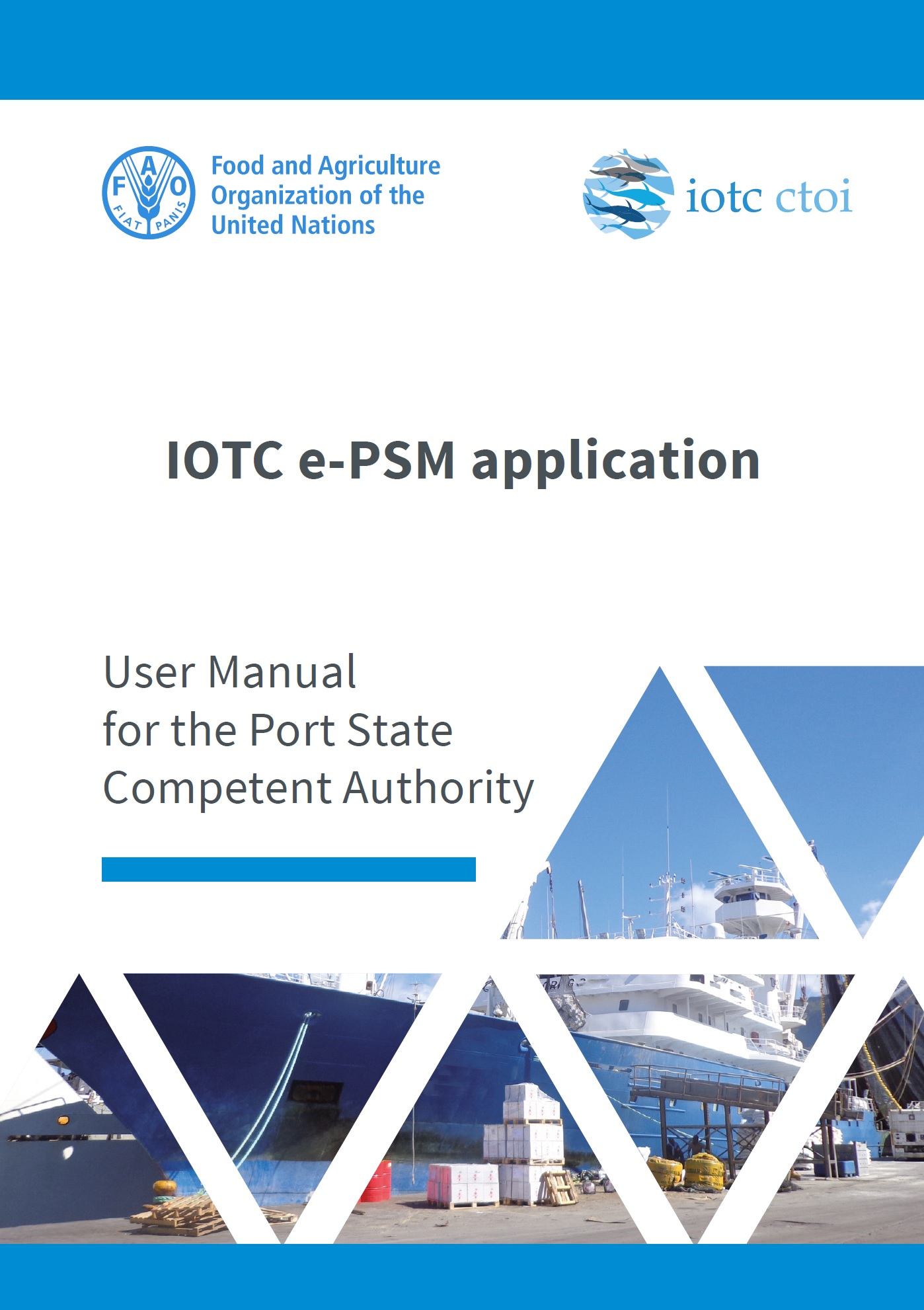 | 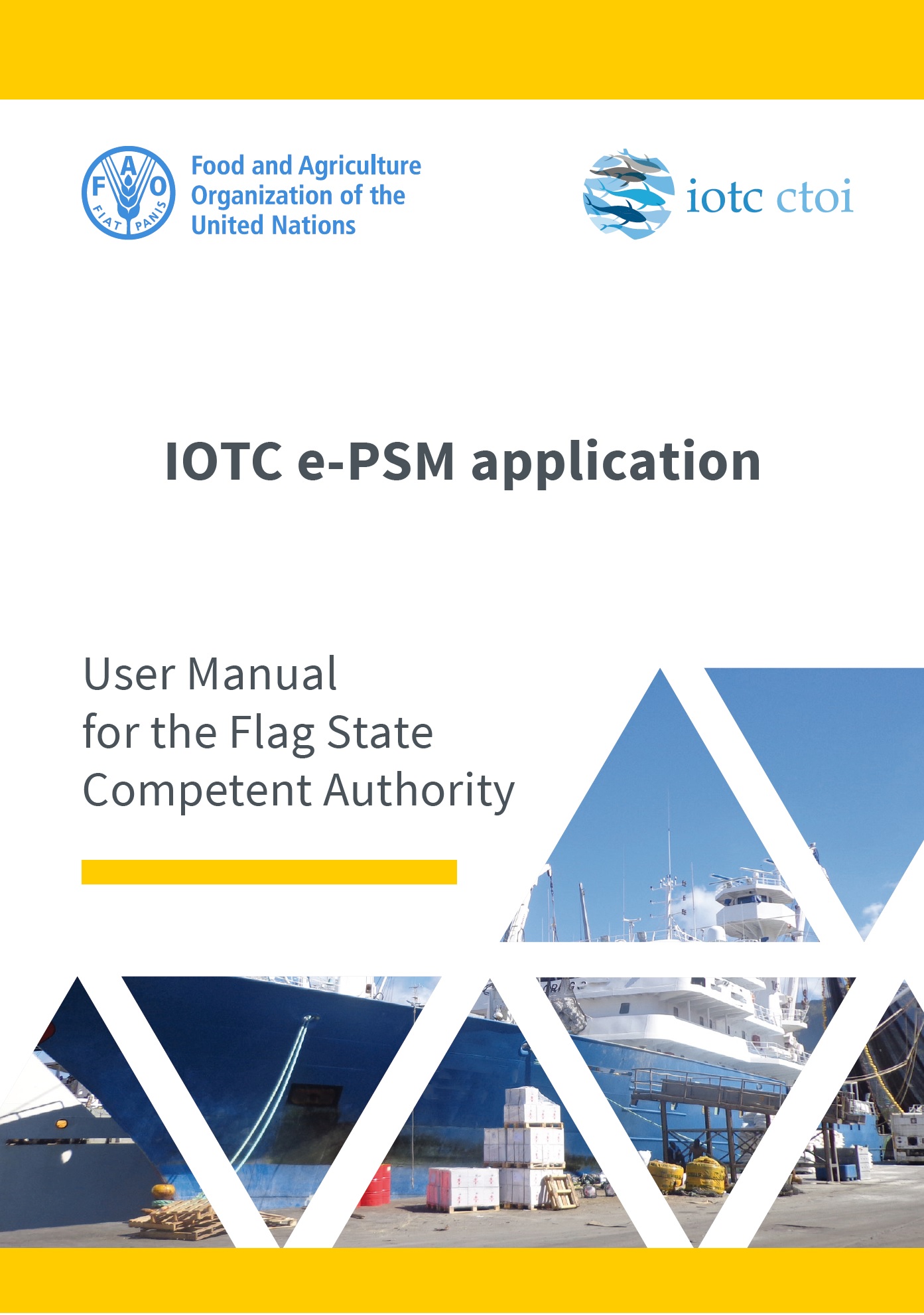 | 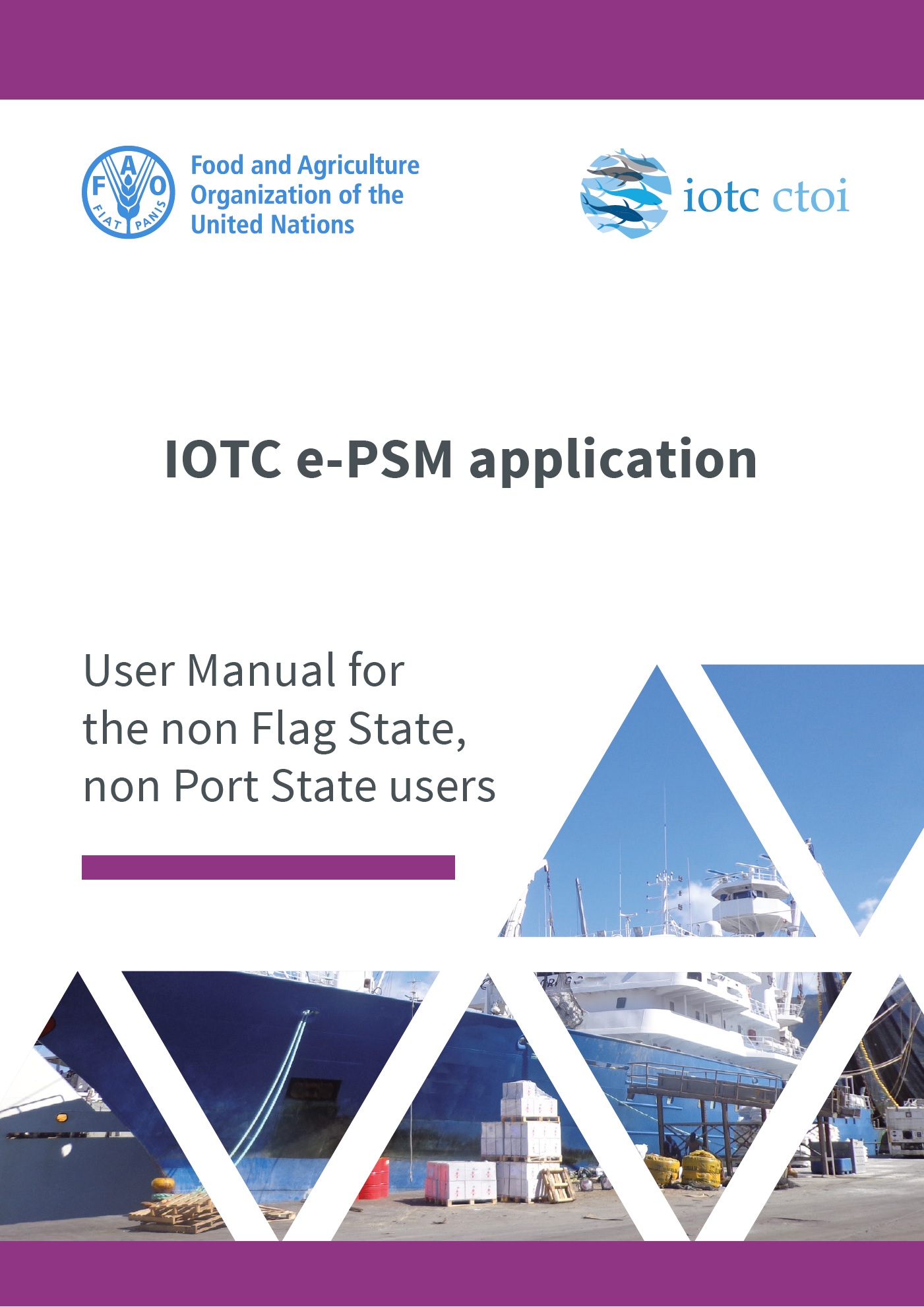 |
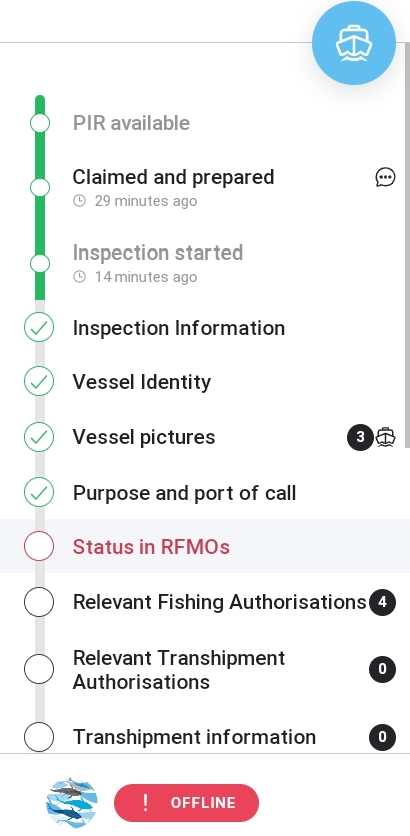
The Offline PIR application allows Port States to handle the whole inspection process digitally, including scheduling of the inspection, completing the Inspection report during the Inspection directly on a tablet/laptop, then uploading it back for finalisation in e-PSM application.
Training courses and follow up undertaken since 2018 : Mauritius, Seychelles, Madagascar, Tanzania, Mozambique, Kenya, South Africa, Thailand, Malaysia, Maldives, Sri Lanka.
For assistance contact the Secretariat.
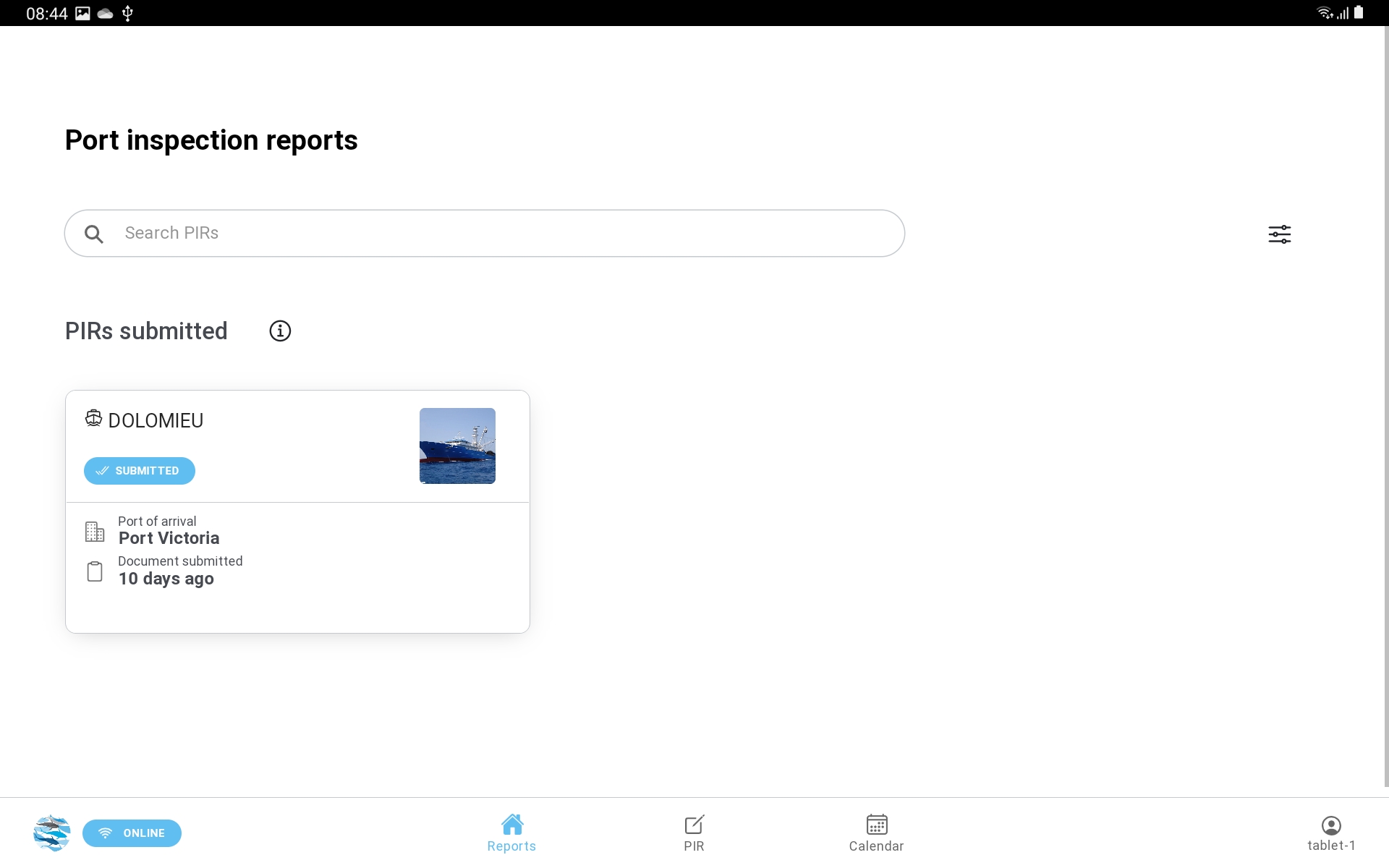
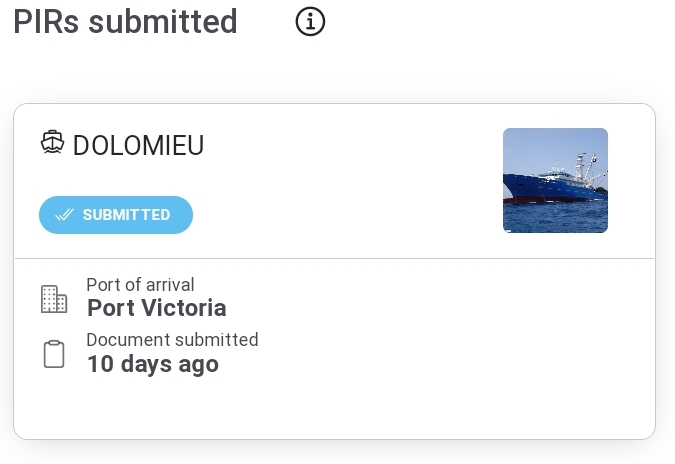
Elaboration of a manual on regional best practices for evidence gathering in the context of the IOTC and delivery of training to MCS officers - The purpose of this activity is to build the capacity of officers and inspectors from IOTC CPCs for gathering evidence to prosecute individuals/organisations that contravene existing national fisheries legislation including where there is provisions to implement IOTC conservation and management measures. It intends to build the capacity of officers/inspectors from IOTC CPCs for gathering, handling, preserving and using evidence with a view to tackling IUU fishing in the IOTC area while implementing port State measures (Resolutions 25/11) and to prepare IUU listing proposal for presentation at the Compliance Committee, in the context of the IOTC IUU Resolution 24/03.
Regional training course: Mauritius June 2022, Seychelles, Madagascar, Tanzania, Mozambique, Kenya, South Africa, Mauritius.
Indian Ocean Tuna Commission (IOTC) Manual: Evidence in fisheries offences: effective collection and use - Laws, procedures, prosecutions, illegal, unreported and unregulated fishing vessel listing
 |
Inspection of vessels guide for fisheries inspectors to contraventions of the Indian Ocean Tuna Commission resolutions - This guide is related to the enforcement of the Conservation and Management Measures of the Indian Ocean Tuna Commission and has been prepared to assist fisheries inspectors with action related to monitoring and enforcement. Its purposes are to facilitate the completion of inspection reports while implementing port State measures or conducting at-sea inspection and to identify actions to be taken by the inspecting authority.
Indian Ocean Tuna Commission (IOTC) Manual: Inspection of vessels guide for fisheries inspectors to contraventions of the Indian Ocean Tuna Commission resolutions
 |  |  |
IOTC capacity building activities are supported by: